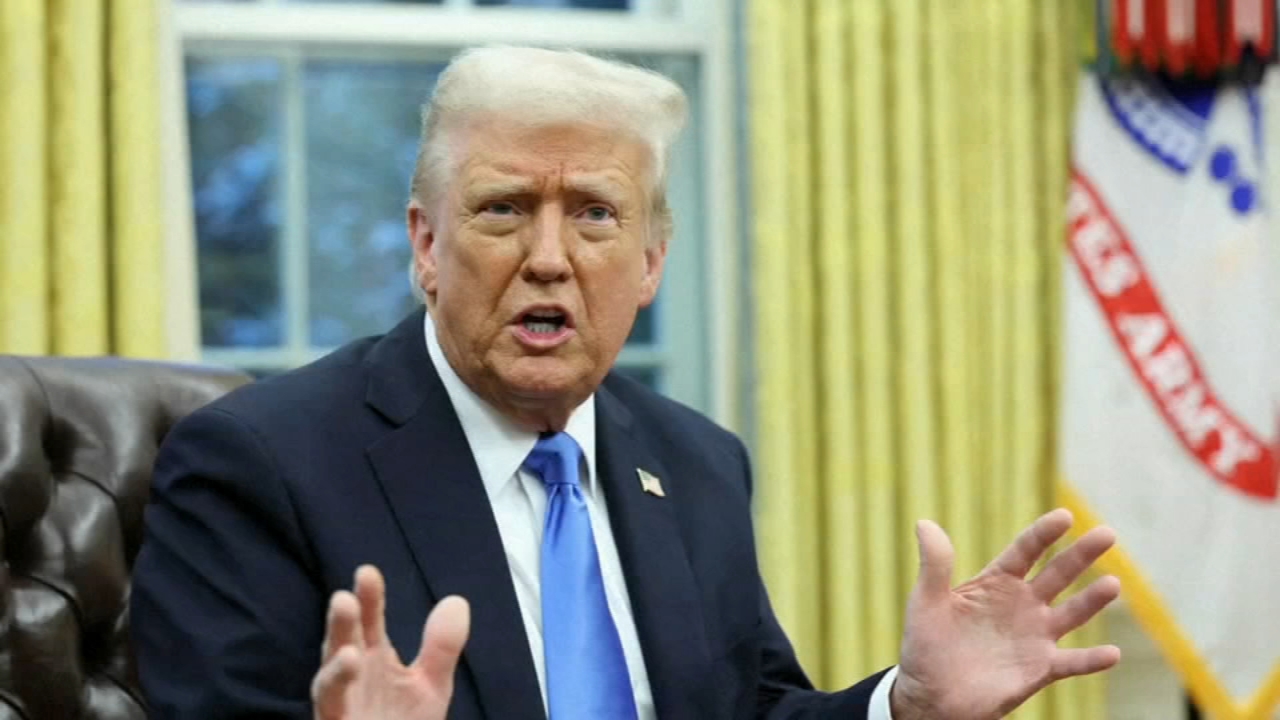New device could reset brains of veterans with PTSD

WESTWOOD, LOS ANGELES (KABC) -- The horror of combat is something many veterans live with, but a new study at UCLA is underway to see if administering mild electrical currents into the brain can reset its networks for those dealing with post-traumatic stress disorder.
One Gardena veteran said this new research is giving him hope.
On May 3, 2006, retired Army Sgt. Ron Ramirez was on night patrol in Iraq when a roadside bomb blew up under his truck.
"I saw a bright light. I couldn't see and I couldn't hear," he said.
The machine gunner suffered a traumatic brain injury and a perforated ear drum.
While his body has healed, "invisible wounds" continued to haunt him.
He'd have night terrors and couldn't sleep. His violent outbursts scared his 12 and 13-year-old daughters and everyone he was close to.
"I would yell. I'd throw things. I couldn't see it," Ramirez said. "Everyone else told me there was something wrong, but I couldn't see it."
Ramirez said he tried to avoid people as crowds over-stimulated him and noises often set him off.
A year after the explosion, he was diagnosed with post-traumatic stress disorder, and psychotherapy and medication did little to alleviate the anxiety, nightmares and anger.
Soon after, Ramirez heard about a new study for veterans with PTSD.
Researchers at UCLA's Semel Institute for Neuroscience are studying how stimulating a nerve on the side of the face, called the trigeminal nerve, might reset brainwaves.
Dr. Andrew Leuchter said TNS therapy has been used to treat epilepsy and depression, but it holds great promise in treating chronic PTSD.
According to Dr. Leuchter, the brains of people who go through a traumatic event in some ways get rewired.
"What we're doing with TNS is we're sending electrical signals that can help reset the function of the brain networks that can help them get over their illness," he said.
Doctors say many people don't realize that the language of the brain is electricity, and it doesn't take a lot to make a change.
The current of this device is similar to that of a nine-volt battery.
Researchers say from what they can tell, it's very safe, very effect and has very few side effects.
Dr. Leuchter is working with the VA Greater Los Angeles Healthcare System to recruit more veterans who've served since 9/11.
Half of the vets will receive the treatment, while the other half will get a fake TNS patch to test the placebo effect.
Meanwhile, Ramirez continues his treatment as he places an electrode on his forehead and sleeps with the device.
After using the TNS therapy for two months, Ramirez said he feels like he can win his family back.
"It gave me more confidence," he said. "It gave me a sense of happiness."
For veterans interested in learning more about this trial, they can go to brain.ucla.edu and click the "contact us" link to get more information.











